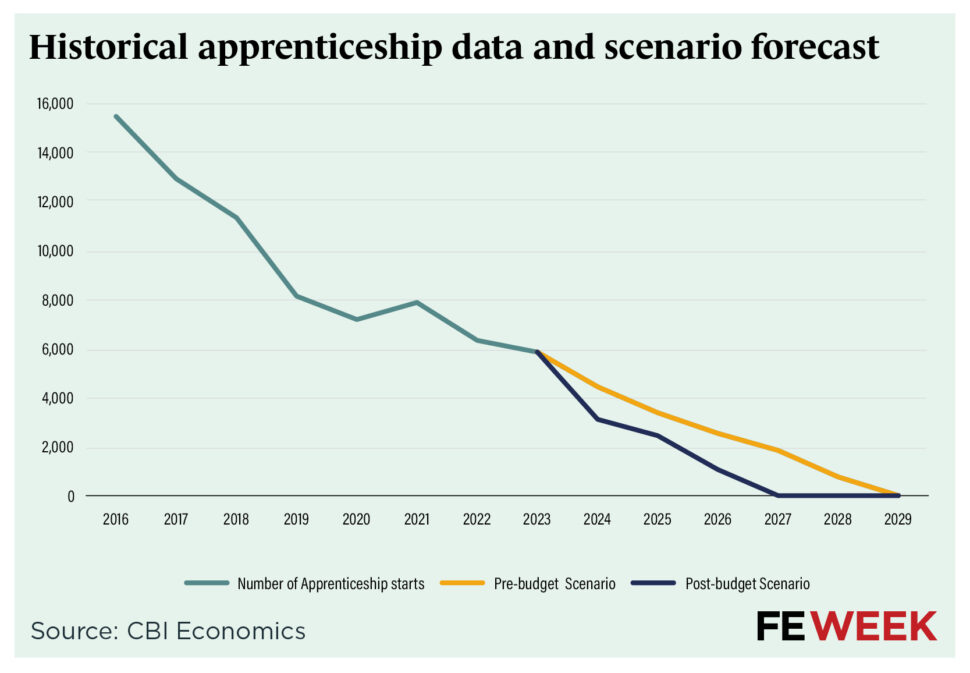A government scheme that paid disadvantaged teenagers to stay in education could have harmed their employment and earnings potential, according to the Institute for Fiscal Studies (IFS).
In a new study – the first to track longer-term education, earnings and employment outcomes of Education Maintenance Allowance (EMA) recipients – researchers found that while claimants were more likely to have stayed in full-time education post-16, they were also more likely to claim out-of-work benefits later.
Limited education outcomes
EMA was introduced by the last Labour government in 2004. It handed out 16- to- 19-year-olds from poorer backgrounds weekly cash payments of up to £30 if they attended school or college. The idea was it would incentivise continuing full time study post-16 and help towards course-related costs such as transport.
But it was expensive, costing nearly £900 million a year in today’s prices. The coalition government abolished the scheme in England in 2011, replacing it with a much lower-cost college-run bursary fund.
EMA is still available to young people in Scotland, Wales and Northern Ireland. Labour did pledge to bring it back in its 2017 and 2019 manifestos, but it did not appear in its 2024 election commitments.
Previous evaluations of EMA overstated its positive impact attainment, according to IFS’ new study, funded by the Nuffield Foundation.
Full-time education participation of 16-year-olds increased by 2.5 per cent because of EMA, half the previous estimate of 5 per cent.
However, IFS said that increase in participation did not lead to better qualification results for A-level or level 2 and 3 vocational students.
“Despite high uptake and attendance-based payments, EMA had no measurable impact on A-level results or vocational qualification attainment,” the report said.
EMA’s impact on specific groups of students was greater.
For SEND learners, the payments increased full-time education participation by 4 percentage points.
And for students with fewer than five A*-G grade GCSEs, EMA also increased participation by 4 percentage points.
Lower earnings down the line
Counterintuitively, researchers found receiving EMA reduced earnings by around 1 per cent each year when recipients were in their 20s.
This could be because EMA recipients were “discouraged” from part time work while at college, therefore reducing their work experience. Similarly, IFS suggested EMA could have incentivised students who would have done work-based training to study at college instead, with the former more likely to give them a better chance at higher earnings in their 20s.
“Our analysis suggests that students reduced their part-time work in response to receiving the EMA, and this appears to have harmed rather than helped their long-run labour market prospects.”
Nick Ridpath, research economist at the IFS, said: “The EMA, which cost billions through the 2000s, did not have the hoped-for positive effects on educational outcomes and later employment. Indeed, it looks like it may have had negative consequences by discouraging disadvantaged young people from getting work experience.
“The Scottish, Welsh and Northern Irish governments, which still fund this scheme, might want to take note.”
But EMA may have cut crime
While not an explicit objective of EMA, the IFS report suggests it may have contributed to a small reduction in crime.
IFS estimated EMA reduced the probability of convictions between the ages of 19 and 29 by 4 per cent.
The report said: “The EMA appears to have had a persistent negative impact on criminal behaviour that extended into later life.
“This is most likely due to its initial impact on criminal convictions at ages 16-18, as students diverted from criminal activity at younger ages become less likely to commit crimes at older ages.”









